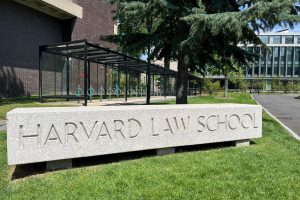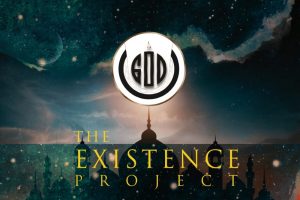
Tariq Mahmood, Canada
The universe lies in wait for us to behold her marvels. As we peer into distant galaxies, we still stand in awe of the lustrous mountains here on earth. As we unearth other-worldly exoplanets, our own oceans still amaze us. This is the magic of the universe we call home.
But where did it all come from?
Pointing to creation as proof of the Creator has been proposed by various religious and non-religious groups since time immemorial. But many a modern atheist will dismiss this argument as rudimentary and fallacious. Is this really so? Or – as billions claim – does the evidence really point toward a grand Creator? The greatest philosophical minds have sought to harness the reigns of philosophy and tame this elephantine subject with rationality and theory alone. And while philosophizing the great questions of existence is a crucial part of the equation, the paper boat of philosophy can never lead one to the shore of certainty about anything.
The Qur’an – the holy book of Muslims – proposes a fascinating line of argument. It states ‘Have they been created from nothing, or are they themselves the creators? Did they create the heavens and the earth? Nay, but they have no faith.’ [1]
Here, God Almighty presents a simple argument. Four options are presented.
- That the universe and all matter within it was created from nothing and willed itself into existence.
- That the universe created itself.
- That it was created by something which itself is also created (by something else).
- That the universe was created by something that is uncreated, which consciously intended to create it.
Thus, the Holy Qur´an claims that it is impossible for the universe to exist without a Creator. Our existence necessitates a Creator. When new Atheists hear this, many argue that this is not the case. One of the key arguments they use to substantiate their belief is that matter can arise from nothing, so there is actually no need for a Creator. But is it even possible for nothing to give rise to something? Can something emerge from absolutely nothing?
The New Atheists’ Definition of ‘Nothing’
To bring home their point, some atheists offer a definition of the word `nothing´ which they feel eliminates the need for an Initial Cause or Creator of the universe. One such atheist is Dr Lawrence Krauss. He explains that the universe could arise in the same way that particles arise in quantum fields.
Quantum fields refer to the underlying fields in the universe. Astrophysicist Ethan Siegel explains that ‘in Quantum Field Theory (QFT), quantum fields aren’t generated by matter. Instead, what we interpret as ‘matter’ is itself a quantum field. And these quantum fields, themselves, are made up of particles.’ [2]
The electromagnetic fields are made up of photons, the strong nuclear field is made up of gluons, and the gravitational field is composed of gravitons.
Thus, the very fabric of the universe is made up of particles. There is no such thing as zero energy. Space is filled with these fields, gently vibrating. Therefore, within these fields which are comprised of energy, particles are produced. They pop into existence alongside their opposite particle, and they clash together and annihilate each other. [3]
So, some new atheists posit, when these particles pop in and out of existence, this proves that there is no need for them to have been created by any God. Firstly, the spontaneous production and destruction of a particle in no way removes the logical need for them to have been caused by something else.
Secondly, can this phenomenon be equated to something as astronomically stupendous as the inception of our universe? It is a grave injustice to point to a sub-atomic phenomenon where micro-particles appear and disappear and try to equivocate that to something as complex and astonishingly fine-tuned as the Big Bang and the breathtaking moments of perfectly precise chaos that followed.
Thirdly, when these particles are created in the universe, they emerge and extinguish inside these fields. But prior to the universe, these fields did not exist!
Hamza Tzortzis, the author of The Divine Reality, explains the fundamental error that people like Krauss have made:
In his book, he (Krauss) calls nothing ‘unstable’, and elsewhere he affirms that nothing is something physical, which he calls ’empty but pre-existing space’. This is an interesting linguistic deviation, as the definition of nothing in the English language refers to a universal negation, but it seems that Krauss’s ‘nothing’ is a label for something. [4]
So, if Lawrence Krauss wishes to call these fields ‘nothing’, then he is seriously mistaken.
So then, what is nothing?
Professor David Albert also reviews Lawrence Krauss’ book and eloquently points out the glaring incongruity:
‘The true relativistic-quantum-field- theoretical equivalent to there not being any physical stuff at all isn’t this or that particular arrangement of the fields —it is just the absence of the fields!’ [5]
To call the phenomenon of particles popping in and out of existence a primer for the Big Bang is foolish, Professor David Albert explains, in that it shows matter being created out of sheer nothingness, without reason or intent. Gluons pop into and out of existence in a field known as the Gluon Field, and yet true ‘nothingness’ would not be a particle before or after it has existed. Rather, it would be the total absence of such a field altogether. Since Lawrence Krauss’ definition of nothing is composed of fields, it is obviously something rather than nothing.

The Proposition of Stephen Hawking
Professor Stephen Hawking also categorically states that he believes the universe came from nothing.
He argues that ‘The laws of physics demand the existence of something called negative energy‘. He asks the reader to imagine that he is making a hill on a flat piece of land. As he digs to provide dirt for the hill, he is simultaneously digging a hole. He calls this ‘negative energy’, which accompanies positive energy. All this negative energy is stored within the empty vacuum of space. [6] Therefore, the whole universe has a value of zero, because all the negative energy and positive energy balance out.
While this explanation appears satisfying at first glance, it sadly contradicts many of the premises offered by scientists themselves. Where and when did this negative and positive energy come into existence? Hawking answers that he believes the separation took place at the point of the Big Bang (i.e., the expansion of the universe). A small singularity popped into existence, and thus, it built the ‘hill’ of our existence and dug the hole of negative energy.
This is his explanation for this juncture of the universe’s birth. But how is the need for God – the Initial, Uncaused Cause, outside of space, time and matter – rendered at all unnecessary in this equation?
He explains:
‘You can’t get to a time before the Big Bang because there was no time before the Big Bang. We have finally found something that doesn’t have a cause, because there was no time for a cause to exist in. For me this means that there is no possibility of a creator, because there is no time for a creator to have existed in.’ [7]
With due respect to the late professor and one of the greatest physicists of our time, this answer creates more problems than it supposedly resolves, and is mired in a self-destroying logic. Hawking posits that God couldn’t exist because there was no time for a Creator to exist in.
However, the entire concept of a Creator is based on the premise that nothing finite can cause itself – not even time. The question of what ’caused’ the dimension of time to come into existence is still an absolute logical necessity. In no way does the appearance of certain particles that soon fizzle right back out of existence remove the need to ask the question of Who or What caused them to exist in the first place.
Secondly, when we know that time began with the inception of the universe, its finitude demands that we ask what caused time to adopt the robe of existence in the first place. The Cause of All Causes, therefore, is necessarily outside the realm of time.
There must be something that precedes our universe. When Hawking says that this isn’t possible, he also denies the creation of the universe, in any possible theory. If time didn’t exist, then according to his own logic there could not have been a ‘before’. Thus, this argument is also philosophically self-refuting.
For this, the physicist has no answer, other than a realm in which everything is infinite in every possible way.
This is the Multiverse theory in which – because all things are possible – so is this universe. This cannot suffice either, for if the multiverse is infinite in some way, how can it create time within it? When did it do so? This concept would ascribe some sort of super-time to the multiverse as well, and thus, we arrive at the same problem, i.e when was this multiverse created, and how?
Hazrat Mirza Ghulam Ahmad´s (as) Answer
So how did the universe come from ‘nothing’? Is Allah composed of matter, of which we are a piece?
The answer is given by Hazrat Mirza Ghulam Ahmad (as), the Founder of the Ahmadiyya Muslim Community. In his book entitled Purani Tehrirein, he explains that the universe must have come from non-matter at one point, for if it had come from matter, then we would keep moving backward until we got to a point where God created something out of true nothingness.
Therefore, we Ahmadis believe that matter arose from non-matter. So what difference is there between our claim and the claim of the atheists that matter can arise from nothing?
The Promised Messiah (as) explains that something cannot arise from nothing, unless there is a conscious cause which wills for this creation to be borne. After all, 13.8 billion years ago, we cannot deny that the pre-universe suddenly preferred existence over relative non-existence. If this power did not exist, there would not be any cause for the universe to come into being.
Furthermore, though we may not understand the ability for something to be created from nothing, we must understand that the creation of matter from non-matter requires seething power, combined with a preference for it to exist, which supersedes the state of non-being and allows it to exist. [8] This recipe causes what we see around us. The universe itself necessitates a cause. We cannot escape this fact.
To dig a hole and make a hill (Hawking’s theory mentioned earlier in the article), Hawking may have forgotten that someone or something actually needs to dig the hole and make a hill – it can’t happen by itself! How ironic that the example given to try and disprove the need for a Powerful, Intelligent and Conscious Creator demands all three things simultaneously. Take any of those attributes out of the example and there will never be a dug hole for us to ruminate at all.

Could the Universe Create Itself?
The Qur’an challenges us to reason whether the universe is capable of creating itself. We come to the conclusion that this is impossible, for it implies that something exists and doesn’t exist at the same time. Some say that a thing can create itself by preexisting in a different form and giving birth to itself, as a caterpillar turns into a butterfly.
This is erroneous as well, because it wrongly attributes infinitude to a universe markedly limited by a beginning and an inevitable end, if the laws of physics have anything to say about it.
This flawed theory employs the masked man fallacy, which is when someone assumes that if two or more descriptions refer to the same thing, then they can be freely substituted with one another. The self-creation theory posits that the universe and ‘pre-universe’ are the same, when in fact we know that the universe and the state prior to the big bang are not the same at all. Time did not exist prior to the Big Bang, nor did space. Indeed, nothing existed in remotely the same way. Thus, we cannot say that the universe created itself. Furthermore, it does not automatically absolve the said singularity of the need for a Creator or cause.
Was the Universe Created by Something Created?
The Qur’an asks the reader to ruminate whether the universe was created by something that was created as well. Does this solve the question of the Creator? Of course not, because the logical answer after that would be ‘who created that created thing?‘ Each time we land on the next step in this line of questioning, we would be forced to ask who created that? Unless, of course, it stops at something independent from the cycle of creation. If there were an infinite number of creations before us, that means we would never be caused, because infinite causes have to occur before us, and infinity, by definition, does not end.
Why the possibility of an infinite regress is impossible may call for a separate article, but it suffices to say: that which we call God is a Being who breaks free of the cycle of creation. Regarding this, Hazrat Mirza Bashir Ahmad, M.A. (ra), author of the book Our God, delivers a conclusive argument. He states:
‘The term ‘God’ has to be reserved for the One highest of all, and the term creation infers the existence of a Higher Being who has the capacity to create… Calling someone ‘created’ implies that we believe in the existence of some higher being, who is its creator and master… If there is truly such a being then that higher being is God, not the so-called subordinate ‘God’ who is created and possessed and governed…
Think and think again: you can call a being God only as long as you regard Him as uncreated. As soon as you introduce the concept of him being created, you are compelled to accept the existence of a superior being above him, who should be the creator and master of the former. This immediately transfers the status of God from the subordinate to the superior. In short, the being who is determined to be created cannot be God; the being who is his creator and superior will be called God.’ [9]
This compels one to believe in the creation of the universe from something uncreated. This must be the case to break the cycle of creation becoming ad infinitum. The qualities of this God must be in line with this rule. God must be uncreated, and thus eternal.
The universe is beautiful in many ways. From the tiniest electrons revolving around nuclei to stars in their gargantuan orbit around black holes, our universe is a multiverse of chaos poised for miraculous order. As we appreciate artists for their paintings and writers for their novels, we must also look to this universe and appreciate the Being who has created it.
Every atom of this universe echoes in unison to understand that it has a Creator. It is up to us to discover Him.
About the Author:Tariq Mahmood is a graduate of the Ahmadiyya Institute of Languages and Theology in Canada and serves as Secretary of The Existence Project Team for The Review of Religions.
ENDNOTES
[1] The Holy Quran, 52:36-37
[4] Hamza Andreas Tzortzis, in The Divine Reality: God, Islam & The Mirage of Atheism (San Clemente, California: FB Publishing, 2019), p. 78.
[5] https://www.nytimes.com/2012/03/25/books/review/a-universe-from-nothing-by-lawrence-m-krauss.html
[6] Stephen Hawking et al., in Brief Answers to the Big Questions (New York: Bantam Books, 2018), pp. 36-41.
[7] Ibid., p. 40.
[8] Mirza Ghulam Ahmad, Purani Tehrirein, Rohani Khazain, vol. 2 (1879; repr., Surrey, UK: Islam International Publications Limited., 2021), pg 9–11.
[9] Mirza Bashir Ahmad, in Our God: Proving the Existence of God by Rational Means, 2nd ed. (Tilford, UK: Islam International Publications Limited, 2016), p. 84.




Add Comment